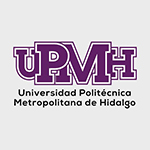Introduction and Overview: "Metropolitan Polytechnic University of Hidalgo" may be a polytechnic university located in a city in Hidalgo, Mexico. It mainly cultivates professionals in the field of science and technology, and provides multidisciplinary education courses such as engineering, technology, and science. It may also cover some business, humanities and social science courses to meet the diversified development needs of students. The school may have multiple campuses, equipped with teaching facilities such as teaching buildings, laboratories, and libraries, as well as living facilities such as student dormitories and canteens.
History and establishment time: Due to the lack of specific information, it is difficult to determine its establishment time and detailed history. However, many polytechnic universities were established when the country's industrialization process and technological development needs grew. This university in Hidalgo may have been established in the mid-to-late 20th century to meet the local demand for technical talents. During its development, it has continuously expanded its disciplines and improved its teaching quality.
School strength: If it is a regular polytechnic university, it usually has a certain number of professional faculty members. The teachers have a solid academic background and industry experience and can carry out high-quality teaching and scientific research activities. In terms of teaching facilities, it will be equipped with advanced laboratories, such as engineering laboratories, computer laboratories, etc., to provide students with a practical and innovative environment; the library may have a rich collection of professional books, academic journals and electronic resources. The school may also cooperate with local enterprises and scientific research institutions to provide students with internships and employment opportunities to enhance their practical ability and employment competitiveness.
Nature of the institution: It may be a public or private institution. Public institutions are generally funded by the government, with low tuition fees, aiming to promote regional educational equity and cultivate talents to serve local economic and social development; private institutions mainly rely on tuition fees, corporate investment and donations to operate, and are more flexible in curriculum setting, enrollment and cooperation, and can respond quickly to market demand.
Educational philosophy: The common educational philosophy of polytechnic universities is to combine theory with practice, focusing on cultivating students' innovative thinking, practical ability and ability to solve practical problems. The school may emphasize technology application-oriented, cultivate professional talents that adapt to social development and industry needs, and at the same time focus on improving students' comprehensive qualities, such as teamwork and communication skills.
Key laboratories, disciplines, and departments: Based on the characteristics of science and engineering universities, key disciplines may be concentrated in the field of engineering, such as mechanical engineering, electronic engineering, civil engineering, etc.; computer science and technology, materials science and other disciplines may also be key development directions. Accordingly, the school may set up key laboratories such as engineering laboratories, computer technology laboratories, and materials research laboratories. In the establishment of departments, they may be divided according to subject areas, such as engineering departments, computer science departments, science departments, etc., in order to carry out teaching management and discipline construction.
Ranking: No relevant ranking information has been found so far. It may be difficult to find traces in internationally renowned university rankings such as QS, THE, and U.S. News. This may be related to factors such as the school's international influence, the number and quality of scientific research results, etc. In the local or domestic area, its ranking may be affected by factors such as teaching quality, faculty strength, and discipline construction.
Cost: If it is a public institution, the tuition fee is relatively low. The tuition fee for domestic students may be from several hundred to several thousand pesos per year. The tuition fee for international students will increase, but it is still lower than that of European and American universities; the tuition fee of private institutions is usually higher, which may be tens of thousands of pesos per year, but scholarships, grants and other funding programs may be provided. In addition to tuition fees, students also need to bear the cost of books, accommodation, living expenses, etc., and the cost varies depending on the consumption level of the region.
Campus environment: The campus generally has a modern teaching building equipped with multimedia classrooms, professional laboratories and other teaching facilities. The library may have a rich collection of books and electronic resources to meet the learning and research needs of students. In terms of living facilities, there will be student dormitories and canteens to provide convenience for students; there may also be sports stadiums, activity centers, etc. to enrich students' extracurricular life. Campus greening and landscape design may focus on creating a comfortable learning and living environment.
-

National Autonomous University of Mexico
-

Anahuac University of North Mexico
-
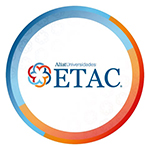
Universidad ETAC
-

Universidad Autonoma de Guadalajara
-

Meritorious Autonomous University of Puebla
-
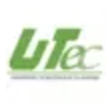
Technological University of Tulancingo
-

Technological University of Huejotzingo
-

Autonomous University of Sinaloa
-
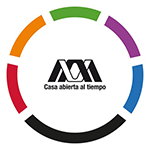
Metropolitan Autonomous University
-
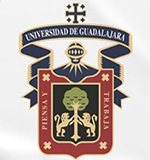
University of Guadalajara
-

Mesoamerican University
-

Istmo University
-

Mariano Galvez University of Guatemala
-

Regional University of Guatemala
-

Galileo University
-

Francisco Marroquín University
-

Rafael Landívar University
-

University of the Valley of Guatemala
-

University of San Carlos of Guatemala
-

Technological Institute of Tlaxcala Plateau
-

Golfo University
-

Technological University of South Sonora
-

Technological University of Huejotzingo
-

Tizimín Institute of Technology
-

Chilpancingo Institute of Technology

